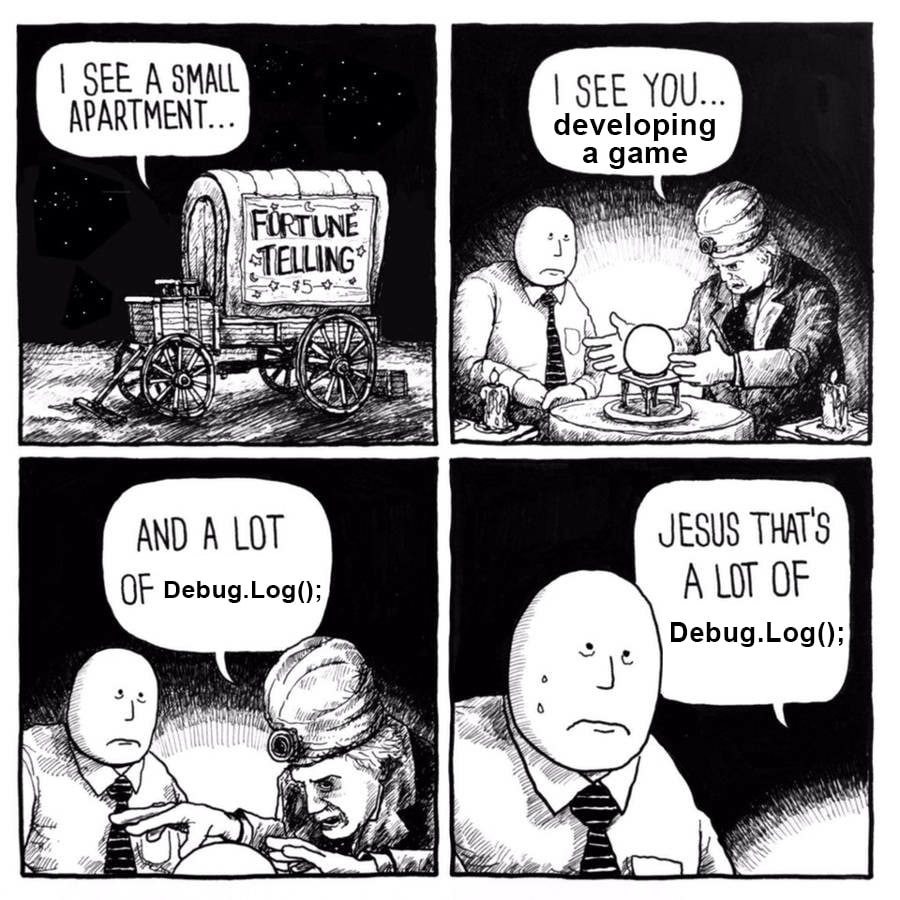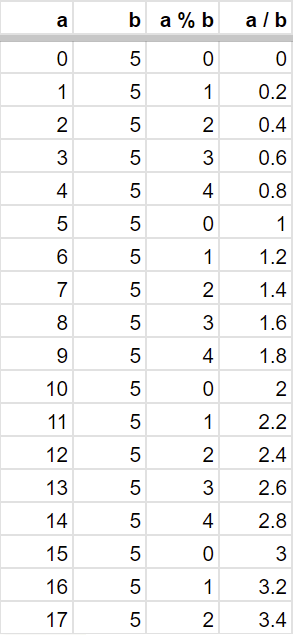Programming 1. Variables
1. Variables
About C#
- C# is a general-purpose object-oriented language
- Created by Microsoft in 2000 as a competitor for Java
- Syntax
- Pretty much everything will be inside a class
- Curly brackets
{and}mark the bodies of statements- Namespaces, classes, functions…
- Semicolon at the end of most statements
- VS code tells if it’s missing!
C# syntax example
using System;
namespace MyAwesomeProgram
{
class Program
{
static void Main(string[] args)
{
Console.WriteLine("Hello World!");
}
}
}
- In Unity, we don’t (necessarily) have to deal with namespaces.
Variable declaration
int number = 1;
1) Modifiers (not necessary)
2) Type declaration
3) Variable name
4) Initial value (not necessary) after =
5) Line ending with ;
Commenting
- one line
// one line comment - multiline
/* this is a multi-line comment */ - Comments are not executed
- Use to 1) explain your intent 2) comment out actual code for testing and debugging
The most important variable types
bool: truth value (true / false)bool booleanValue = true;int: whole numberint wholeNumberValue = 3;double&float: decimal number (double = double precision)float numberValue = 3.0f;string: text fieldstring text = "text is here";
Modifiers
- A common modifier to add in front of a variable is
const, short for constant - If we know that a value of a variable is never going to change during the execution of the script, we can set it to
const:const string text = "I never change!"; - Other modifiers include access modifiers.
Unity Console
- Console Window
- Error messages
- Debug messages
Debug.Log(textVariable)- Use it to print stuff into the console
- As the name suggests, it’s used for debugging
- You can print other variable types as well, not only strings!
Debug.LogWarning()Debug.LogError()

Basic arithmetic operations
+(addition)-(subtraction)*(multiplication)/(division)
Extra: Modulo operator
%- modulo operator (remainder)
- great for looping a range

Exercise 1: Trying out variables
- Create a new Unity project for simple programming exercises.
- Create a new C# script component inside an empty GameObject.
- Declare two variables
aandbwith the typedouble. -
In the
Start()function, print to console four operations: the sum, difference, fraction and product. - What happens if either of them is equal to zero?
Reading
Microsoft’s own C# Reference is a great way to dive deeper into the language.
Some basics covering the syntax in C# are covered here:
- Sepeli ry: C# (In Finnish)
- https://www.tutorialspoint.com/csharp/index.html
- https://www.w3schools.com/cs/default.asp